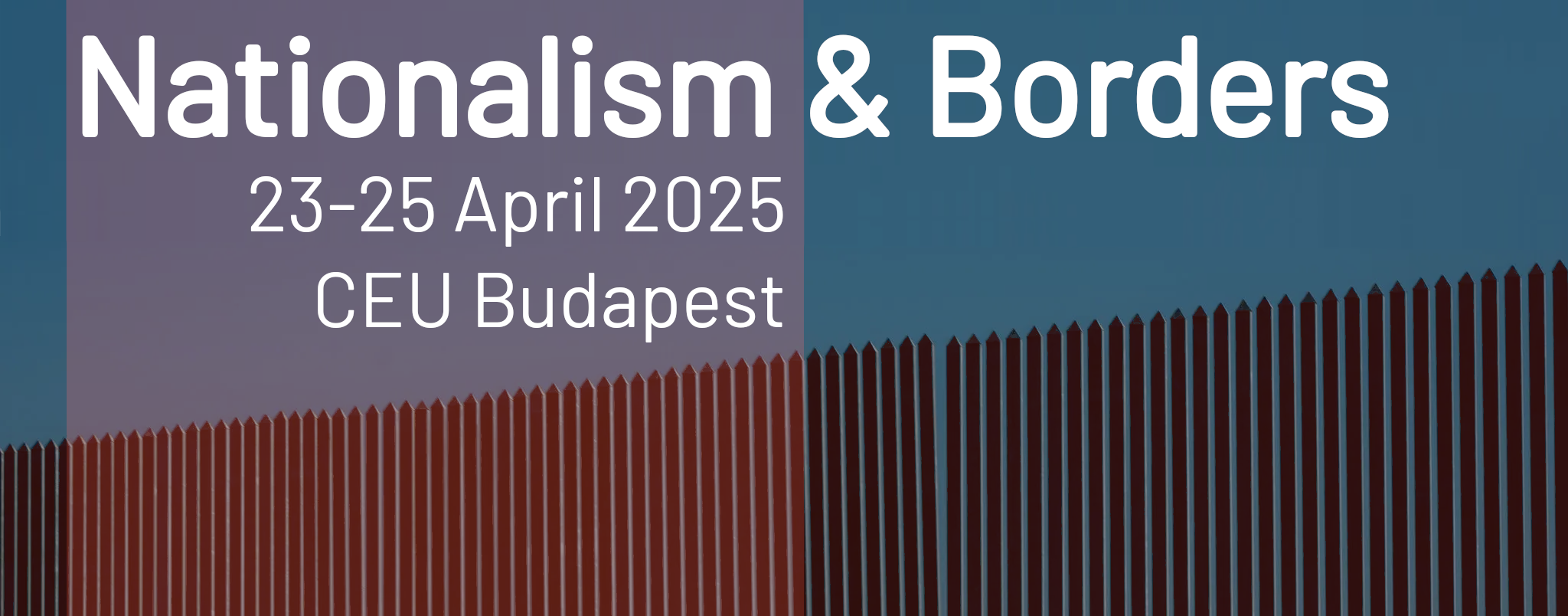The call for papers is also available to download as a PDF.
Borders are central to understanding nationalism, playing a crucial role in defining the spatial and symbolic limits of national identity. In a world shaped by globalization, migration, and transnational flows, the significance of borders — both physical and ideological — has become increasingly contested. Borders serve as tools of inclusion and exclusion, defining the parameters of nationhood and often becoming sites of conflict and negotiation. The intersection of nationalism and borders is not only a contemporary concern but also deeply rooted in historical events, treaties, and the legacies of war and violence.
This conference aims to explore the multifaceted relationship between nationalism and borders, examining how national borders have been constructed, maintained, and challenged in the past and in the present. It will investigate the ways in which nations create borders and borders create nations. It will further investigate the significance of borderlands, of in-between territories, in shaping national identities, influencing state policies, and impacting the lives of those who live along or across these dividing lines. By addressing the dynamic and often contentious nature of borders, the conference seeks to offer new insights into the evolving manifestations of nationalism in a world where the boundaries of the nation-state are both blurred and re-affirmed.
2025 also marks the centenary of Ernest Gellner, whose works on nationalism and the misalignment of political and ethnographic boundaries continues to influence contemporary scholarship. We invite papers that engage with Gellner’s legacy, as well as those that explore related themes in the work of other prominent theorists such as Rogers Brubaker, Charles Tilly, Fredrik Barth, and Brendan O’Leary.
In this context, we are particularly interested in contributions that engage with the following questions: Why do nations need borders and what kinds of borders have nations sought to create? How do borders function as tools of national identity construction? What roles do borders play in the politics of exclusion and inclusion? How are borders negotiated and contested by different actors, including states, communities, and individuals? How do global phenomena such as migration, climate change, and digitalization reshape our understanding of national borders? How do borders intersect with issues of religion, race, gender, and class? How do all these factors interact with boundaries internal to the nation and the state?
We welcome papers from a wide range of disciplines and methodological approaches, reflecting the interdisciplinary nature of nationalism and border studies. We encourage submissions from scholars in fields such as sociology, anthropology, political science, geography, history, international relations, cultural studies, law, and media studies.
This conference is intended to cover cases worldwide, and we encourage submissions that offer comparative perspectives or innovative theoretical frameworks. We particularly welcome contributions that challenge traditional notions of borders, nationalism, and the nation-state, offering new ways to understand the complexities of these intertwined concepts, both in the 21st century and in history.
Themes
Possible themes for submissions include, but are not limited to:
- Theories of nationalism & borders
- Ethnic groups & boundaries
- Ernest Gellner the nation-state
- Border-making & nation-building
- Homelands
- Politico-legal conceptions of territorial sovereignty
- Sovereignty, territoriality, & national identity
- Migration, refugees, & the nation-state
- Borders & the politics of exclusion
- Cross-border communities & transnationalism
- Digital borders & virtual nationalisms
- Borders, religion, gender, & race
- Border conflicts & security
- Border walls & borderlands
- Borders, the environment, & climate change
- The role of borders in cultural & heritage politics
- Historical & contemporary border disputes
- Borders in the age of globalization
- Borders & human rights
- War, nationhood, & borders
- Imperial shatterzones & national conflicts
- Border & nation in media & literature
- Nationalism & borders in postcolonial contexts
- Homeland states, nationalising states, & ethnic minorities
- Postwar treaties, border changes, & their consequences
- ‘Solutions’ to border conflicts (partitions, power-sharing, genocide)

